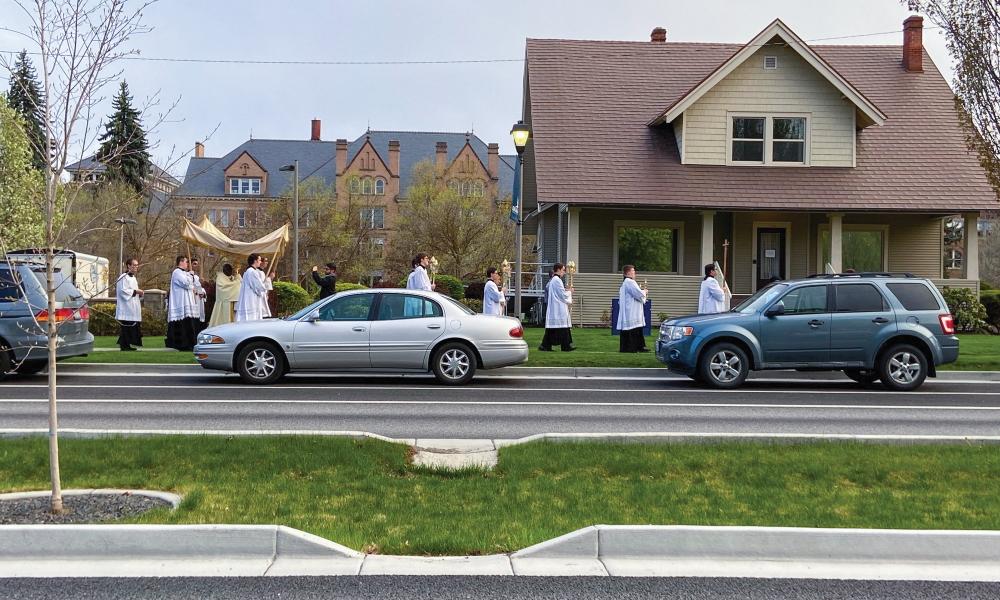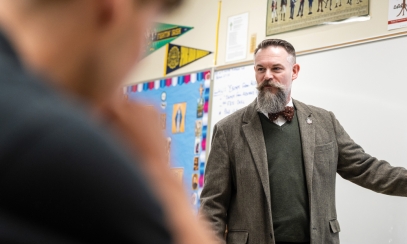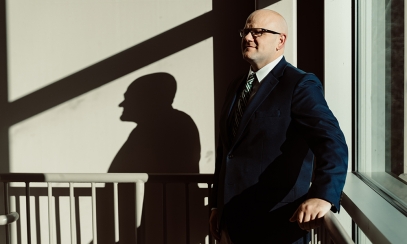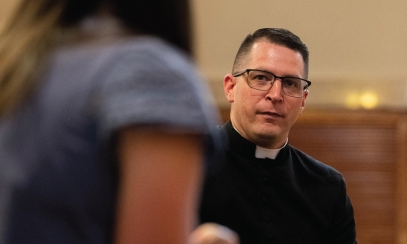
Formation in a time of plague
While the classes for seminarians at Gonzaga University and other local colleges have moved online, priestly formation is more than academic classes, and cannot be done remotely. The program includes human, spiritual, academic, and pastoral formation.
“Formation includes pastoral formation,” said Father Barnett. “The men are usually assigned to a parish to help with liturgy and with catechesis. That is not happening.” In its place, the seminarians are leaning into their communal life of prayer. There are more liturgical celebrations, especially the Liturgy of the Hours, and opportunities for adoration. “The seminarians are praying for the end of the COVID crisis.”
The seminarians have sought to make this increased time of prayer not only an opportunity for spiritual formation, but also a time to serve others, by sharing their prayer life through livestreams and drive-in spiritual opportunities.
Without parish assignments or in-person classes, the seminary has become a more closed environment. “In the midst of this pandemic, the men here at Bishop White Seminary have been forced to grow in community life even more so than before,” said Spokane seminarian Keiron Anderson. “With the ‘Stay at Home’ policy, we are spending significantly more time together, as we are unable to attend our own classes and any social events that used to occur outside the seminary.”
Thomas Malone, a seminarian from the Boise Diocese, agreed. “Cabin fever is definitely real, and sometimes we feel the closeness of the seminary physically and socially as personalities collide,” he said. “However, we have grown closer as friends and remain grateful for the sacraments that are available to us still.”
When asked if the seminary has taken on a monastic flavor during the Stay at Home order, Father Barnett demurred and suggested that the situation is “a bit of a crucible, it’s a bit of what every family is going through.” This comparison to family life and the difficulties of being on top of each other will resonate with many readers. In the midst of all the difficulties, Father Barnett stressed that “our prayer life has to deepen.”
“It is easy to worry about the virus, the economy, and other things, but it is easier to trust in God that things will work out,” Malone said. “I tend to worry about things, but have come to the point where I trust that the Lord will bless us through it all.”
As the seminarians continue their studies, they are also continuing to discern their call to priesthood. Anderson explained how the pandemic has impacted his discernment, saying, “The situation surrounding the pandemic has required stronger perseverance in discernment, but, as we are reminded frequently by our formators, God has called us to be where we are in this moment for a reason.” Malone shared a similar sentiment, and even a deepening faith in the mission of the Church. “I think this virus has made people think more closely about what matters in life, and I have grown more certain that the Church is an effective tool to help people flourish amid hard times,” he said. “I continue to feel called to participate in this life-giving work, and I look forward to discerning further serving as one of God’s consecrated servants if that is what God ultimately calls me to, which for me involves moving on to graduate theological studies next year.”
Father Barnett noted the advantages the seminarians have in access to the sacraments as part of a closed community with priests, but also the responsibility that gives the men in formation. “We have Holy Hours for those who can’t come to adoration, pray more fervently for those who cannot." The seminarians are leading online and in prayer in this unfortunate situation.
Recently, the seminary hosted a eucharistic procession around their neighborhood and invited Catholics to come park along the route and participate from a distance. Anderson summed up the commitment and drive of the seminarians, “Even with the state shut down and many of our former obligations being put off, our obligation to God and our call to holiness still persists, and so does our discernment.”



